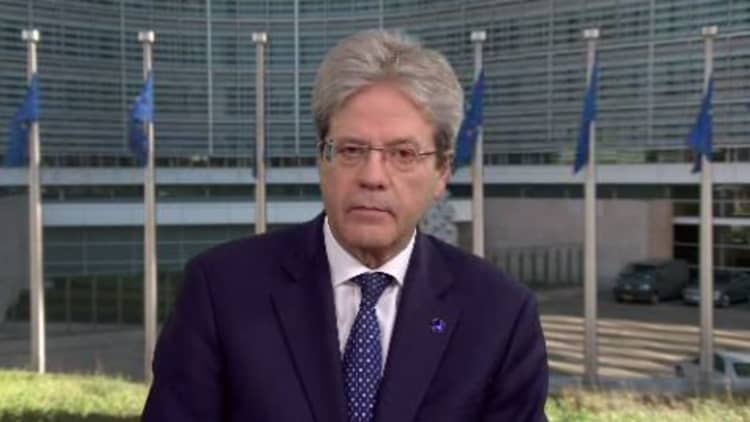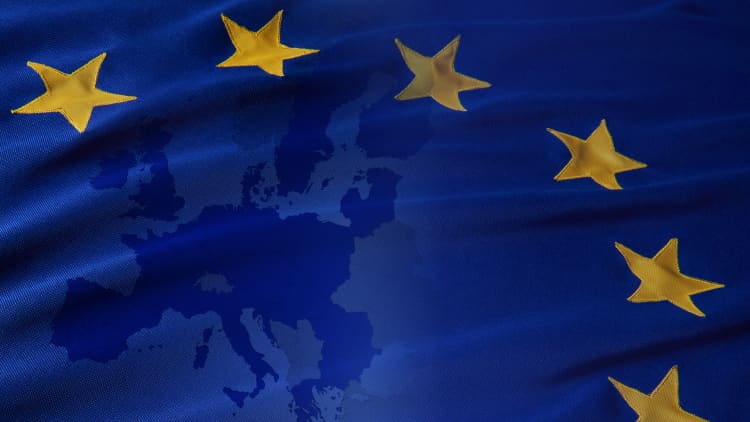
It's been a problem for more than 20 years, but the EU is finally looking at how to update its rules on government spending.
The European fiscal rulebook has divided northern and southern Europe since the laws were established in 1993. Southern nations argue that the rules are too complex to implement, and northern countries believe the problem is a lack of enforcement rather than the rules themselves.
So, the European Commission, which oversees the implementation of the fiscal rules, announced Wednesday steps to update its fiscal rulebook. Currently, EU member countries should not have public debts above 60% of their annual GDP (gross domestic product) nor government deficits above 3% of their GDP. The plan now is to discuss ideas with think tanks, academics and market participants until the end of the year, to form a picture on how to ramp up compliance with these rules — given that countries such as Italy and France have often disrespected them.
"We need to consult first of all the member state governments, the European Parliament, but I have to say also financial institutions, social partners, academia because our rules are now 10 years old and we passed through rather different economic times and updating these rules is really a very relevant task," Paolo Gentiloni, the European commissioner for economic affairs, told CNBC Wednesday.
The EU's fiscal rules were revised in 2011 to step up surveillance in the aftermath of the sovereign debt crisis.
A relaxation of the rules?
"The challenge is to promote a more active fiscal policy towards growth," Gentiloni told CNBC, as the EU faces sluggish economic prospects and, potentially, a less active monetary policy.
One of the biggest issues is the high level of public debt. The average government debt for a member state reached 85.9% in 2018 across the euro zone, according to the latest data from the European statistics office. Though this figure has come down since 2015, it is much higher than the 60% threshold stated in the rules.
More importantly, the countries with the highest level of expenditure are in southern Europe. In Greece, public debt stood at 181.2% of its GDP in 2018. This was followed by Italy with 134.8%; Portugal with 122.2%; and Cyprus with 100%. Furthermore, Spain and France were also among the top five indebted nations in Europe.
"The Commission's position is no secret: Economy Commissioner (Paolo) Gentiloni in particular thinks that the rules are too hawkish and too complicated, and that they hamper slower-growing member states' efforts to revive their economies and to invest in the energy transition," Constantine Fraser, an analyst at the research firm TS Lombard, told CNBC.
European governments, including Italy's, believe that countries should be allowed to spend more to boost their economies. More fiscally-prudent countries, such as The Netherlands, disagree with any relaxation of the rules.
Analysts are therefore skeptical on whether the European Commission will fix this long-standing problem.
What can be achieved?
"There's no consensus on this among the member states, and there will be significant opposition to any significant loosening of the rules. So, they're unlikely to undergo a major overhaul. The likeliest outcome is that member states are granted more flexibility to borrow for 'green' investment," Fraser from TS Lombard said.
Florian Hense, an economist at Berenberg bank, also told CNBC that the best way to heal the north-south divide is through a massive simplification of the rules, which is yet to happen.
"Any steps that end up simplifying the monstrous complexity of the EU's fiscal rulebook are welcome. Simplification would de-politicise the process of consultations over annual budgets and medium-term plans, and would, consequently, facilitate the rulebook's enforceability," he said via email.
The European Commission is aware that the economic environment has changed, and the rules need to demonstrate that. However, the institution has not yet addressed criticism that it's not doing its job in ensuring the rules are followed. None of the European countries have been punished or fined for disrespecting the rules, despite many cases of excessively high debts and deficits.
"Although there is lots of scepticism about what the review can achieve, we are a tad more optimistic," Mutjaba Rahman, managing director of the think tank Eurasia Group, said in a note Tuesday.
"It's true that legislative changes to the rules won't be easy, if not impossible, as these will require unanimity among EU capitals. But senior EU officials fully recognize this constraint and as such are unlikely to pursue this path," Rahman added.



